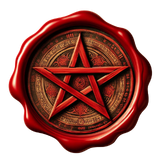We have all heard the funny expression "Hocus Pocus," which implies "cheap" magic tricks. And there is of course the famous movie with the same title that channels never fail to play every Halloween.
But where does it originate from, and what is its story?
Although it appears to have a Latin origin, the earliest reference to the phrase "Hocus Pocus" seems to be in the early 17th century. According to the Oxford English Dictionary, it is attributed to a theatrical magician/sleight of hand artist whose stage name was Hocus Pocus. It is mentioned that he used this phrase as part of a pseudo-Latin incantation he devised for his performance: "hocus pocus, tontus talontus, vade jubeo celeriter." Essentially, these are nonsensical words that simply sound like Latin.
A similar hypothesis was put forward by Thomas Ady in his book "A Candle In The Dark" in 1655. According to him, it originated from a magician/sleight of hand artist at the royal court of King James, who called himself "the extraordinary Hocus Pocus of His Majesty." It is said that he would shout the same phrase, "hocus pocus, tontus talontus, vade jubeo celeriter," before each of his tricks. It is possible that this refers to the same magician/sleight of hand artist.
Another theory about its origin was presented by Anglican clergyman John Tillotson in 1694. According to him, "hocus pocus" is a corruption of the Latin phrase "hoc est enim meum corpus," which means "this is my body" and is said during the Roman Catholic Holy Communion.
According to other speculations, it is an invocation to the magician Ochus Bochus from Scandinavian folklore.
The Welsh phrase "hovea pwca," meaning "a prankster's joke," is another possible source, as well as the renowned character Puck from Shakespeare's play "A Midsummer Night's Dream."
In 1634, a book titled "Hocus Pocus Junior" was published in England, historically considered the first book entirely dedicated to sleight of hand. From the title alone, it can be inferred that the association between sleight of hand and the expression "Hocus Pocus" had already been established by 1634.
Almost a century later, in 1722, a book titled "The Whole Art of Hocus Pocus or Natural Magic, laid open and explained" was published in London. This book also exclusively focused on sleight of hand and heavily relied on its predecessor, "Hocus Pocus Junior." The book was published a total of 11 times, from 1722 to 1795. In fact, it is said that the eleventh edition, published in Philadelphia, America, is believed to be the first book on sleight of hand published in the "New World."
With its more recent reference, it is safe to assume that the expression "Hocus Pocus" has remained in history to denote sleight of hand rather than the art of magic. Most likely, the confusion started with the publication of the book that referred to Hocus Pocus as an alternative name for Natural Magic. It certainly continued with the ongoing misunderstanding of sleight of hand as the art of magic.
One thing is certain: it is an expression that remains famous, without really meaning anything substantial.
And that is quite impressive.


Comments ()